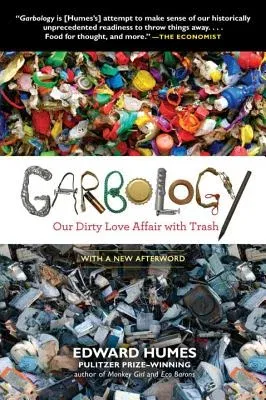A Pulitzer Prize-winning journalist takes readers on a surprising tour
of America's biggest export, our most prodigious product, and our
greatest legacy: our trash
The average American produces 102 tons of garbage across a lifetime and
$50 billion in squandered riches are rolled to the curb each year. But
our bins are just the starting point for a strange, impressive,
mysterious, and costly journey that may also represent the greatest
untapped opportunity of the century.
In Garbology, Edward Humes investigates trash--what's in it; how much
we pay for it; how we manage to create so much of it; and how some
families, communities, and even nations are finding a way back from
waste to discover a new kind of prosperity. Along the way, he introduces
a collection of garbage denizens unlike anyone you've ever met: the
trash-tracking detectives of MIT, the bulldozer-driving sanitation
workers building Los Angeles' Garbage Mountain landfill, the artists
residing in San Francisco's dump, and the family whose annual trash
output fills not a dumpster or a trash can, but a single mason jar.
Garbology reveals not just what we throw away, but who we are and
where our society is headed. Waste is the one environmental and economic
harm that ordinary working Americans have the power to change--and
prosper in the process.
Garbology is raising awareness of trash consumption and is sparking
community-wide action through One City One Book programs around the
country.
It is becoming an increasingly popular addition to high school and
college syllabi and is being adopted by many colleges and universities
for First Year Experience programs.

